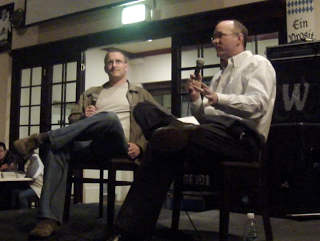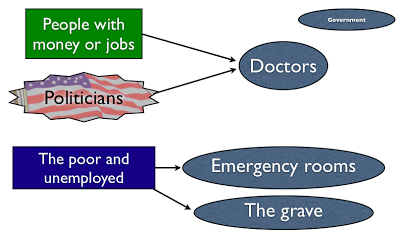Linguist Michael Krauss defines whether a language is endangered or not partly by whether they’re being taken up natively by children. It strikes me that the same criterion could apply to whether a religion is endangered or not.
And right now the stats are not looking good for religion among young people. Earlier this year, a Pew Forum report showed that young people are less likely to be affiliated with a religion than other generations were when they were younger. Now research from evangelical Christians shows the same trend.
“Bye-bye church. We’re busy.” That’s the message teens are giving churches today.
Only about one in four teens now participate in church youth groups, considered the hallmark of involvement; numbers have been flat since 1999. Other measures of religiosity — prayer, Bible reading and going to church — lag as well, according to Barna Group, a Ventura, Calif., evangelical research company. This all has churches canceling their summer teen camps and youth pastors looking worriedly toward the fall, when school-year youth groups kick in.
“Talking to God may be losing out to Facebook,” says Barna president David Kinnaman.
Interesting. Let’s come back to this later.
“Sweet 16 is not a sweet spot for churches. It’s the age teens typically drop out,” says Thom Rainer, president of LifeWay Christian Resources in Nashville, which found the turning point in a study of church dropouts. “A decade ago teens were coming to church youth group to play, coming for the entertainment, coming for the pizza. They’re not even coming for the pizza anymore. They say, ‘We don’t see the church as relevant, as meeting our needs or where we need to be today.'”
Or here: (but caution: author is plugging a book)
‘How can we stop the oil gusher?” may have been the question of the summer for most Americans. Yet for many evangelical pastors and leaders, the leaking well is nothing compared to the threat posed by an ongoing gusher of a different sort: Young people pouring out of their churches, never to return.
As a 27-year-old evangelical myself, I understand the concern. My peers, many of whom grew up in the church, are losing interest in the Christian establishment.
Recent statistics have shown an increasing exodus of young people from churches, especially after they leave home and live on their own. In a 2007 study, Lifeway Research determined that 70% of young Protestant adults between 18-22 stop attending church regularly.
Statistics like these have created something of a mania in recent years, as baby-boomer evangelical leaders frantically assess what they have done wrong (why didn’t megachurches work to attract youth in the long term?) and scramble to figure out a plan to keep young members engaged in the life of the church.
Back to that Facebook comment. I don’t think it’s a coincidence that this shift is most pronounced among an age group that grew up with the Internet. The Internet is contributing to the demise of religion among young people in a couple of ways. First, by contributing to the sharing of knowledge. As knowledge becomes more available, religions (which teach things that are wrong) will seem less and less relevant. Second, the Net has allowed for the building of communities. Many people see value in churches as a social network, but if people have alternative social networks (even online ones), they’re less likely to seek one in a church.
My concern now is that rejection of religion may not be matched by critical thinking and skepticism in other areas. They might just be shifting to other kinds of unreason, notably new age snake oil and other proto-faiths. I think education about how to reason and how to find good information are the most important areas we can be focusing on with this age group.





Recent Comments